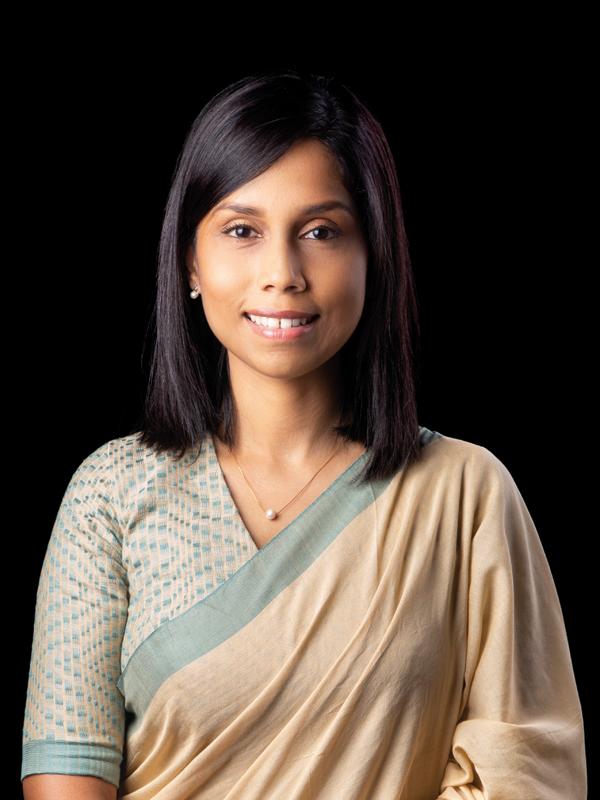Inclusive Parenting for Raising Little Ones with Utmost Care and Affection Interview with Danushka Silva (Marketing Manager – Baby Cheramy)
What is this concept of Inclusive Parenting and why is it imp ortant in the presentcontext?
The famous proverb ‘It takes a village to raise a child’ is still very valid – the difference is that the support system synonymous with a village no longer exists. In yester years, most new parents had the support of in laws and extended family. However, society has evolved since then and today’s most nuclear family units leave no extended family support for child care and new parents have to manage on their own more often than not.
On the other hand, more women are progressively entering the work force given evolving life aspirations and the tough economies, and some have also embarked on home-based businesses; therefore, most families are time starved. Which means that one parent may not be able to do all that they want to do for the child in caregiving, and needs support – especially the mother who’s typically expected to be the primary caregiver of a child; that’s where the concept of inclusive parenting becomes very important.
As you may also know, it’s during the first three years that a child’s brain develops at a rapid phase and is the time when physical and emotional foundations are laid that impact the rest of the child’s life. Therefore, the first three years of your little one is more important than you think and being unable to fully commit to the child within that time period will make a huge impact.
The active contribution of both mother and father helps in laying the right foundation for these little flowers to blossom.
We see that the caregiver for the child is mostly the mother, while father’s role is one of providing for financially. Our salient call is for the father to break out of his cocoon of ‘breadwinner’ stereotype and join the mother to equally contribute towards the upbringing of their children which benefits the children, even the parents, enormously as a family unit. It is time that we lay down the stereotyped parental roles such as breadwinner-father and caregiver-mother.
Babies undoubtedly receive the best care when both the mother and father come together in nurturing the child.
However, we do understand that there are families with single parents and sometimes none of the parents in the picture. We, as a brand, highly admire and applaud all the single parents and the guardians, as they perform both the roles of this inclusive parenting concept.
Baby Cheramy has been a trusted baby care brand for many generations. What role do you expect to play in fostering inclusive parenting among Sri Lankan parents?
As a truly Sri Lankan brand with nearly six decades of existence, Baby Cheramy understands the pulse of Sri Lankan parents and what they expect from us. While being committed to provide safe and high quality baby care products for our babies, we are equally concerned about uplifting our role as a trusted partner in the parenting journey.
I believe we need to create more awareness on inclusive parenting and when it comes to Sri Lankan society, we need to encourage a more active father’s role in upbringing of the kids during early childhood. The reasons for this being, the prevalent societal norms, such as fathers cannot look after kids like mothers do and also the thought that mothers need to be the caregivers while the fathers are breadwinners.
We need to revisit these socially imposed stereotypes and examine how practical they are in modern parenting which is gliding towards inclusive parenting. In this background, we expect to lead a discourse on this imperative subject to familiarize parents and to encourage the practice of it in their day-to-day lives.
Based on the research carried out on the matter, what is the situation in Sri Lanka and what do you think the families’ response to this concept is?
Although there is hardly any material available in Sri Lanka on inclusive parenting, a research conducted by Kantar Sri Lanka in partnership with Baby Cheramy suggests the extent to which Sri Lankan parents have embraced inclusive parenting. The research highlights that majority still believe that the mother is the core caregiver and father’s role is primarily to provide financial support, which was expected as per societal norms. A major positive finding from the research however is that at the same time, 64% of parents strongly agree that a father should equally be involved in day to day activities of raising a child. But fathers don’t put this into action for varied reasons, and in fact, only 33% of fathers believe that they are adequately involved in the day to day lives of their kids.
Whilst stereotypically mother is still expected to play the nurturer’s role, on the bright side, the results show that fathers are willing to take care of their kids; but time constraints and prevalent social stereotypes stand as barriers. However, the fact that the majority of parents believe that both need to equally contribute in raising their little ones, is a promising starting point for the development of inclusive parenting in Sri Lanka.
What impact can inclusive parenting make on the well-being of kids?
Science tells us that 80% of a child’s brain is developed during the first three years. The little ones look up to their parents’ behaviors such as how parents speak to each other, how helpful the father is in daily chores and their brains are capable of quickly grasping every little detail. A father can immensely contribute in creating a positive and loving home environment where the little one can spend time happily, play and learn through exploring.
When a father also finds time to spend with the little one, talk to the child and emotionally connect with the child, it does a world of good to the overall development of the child. Whilst parents today are time-starved, it is about spending even the limited time meaningfully. Experts believe that a positive environment combined with the active participation of the single parent / guardian or both the parents, allow the kids to develop cognitive skills, task initiation, languages, self-awareness, empathy, kindness and many other life skills which are highly beneficial for them in the long run.
How can families better understand inclusive parenting and the apt need for it in the current fast-paced lifestyle of many households?
Since most families are now nuclear families, it is inevitable that they eventually experience difficulties in managing everything and realize the importance of this inclusive parenting concept. The findings of the research carried out, give us hope that fathers too have realized its importance and they are encouraged to contribute more and more.
It is true that fathers are pressed for time having to commit to careers, but the present context demands them to invest at least a little time on kids and most importantly to make the home front a happy dwelling place. A father can contribute to the development of the little one by doing fun activities, playing games with the child, taking the child on nature walks, by storytelling and many more, making meaningful use of the available time.
What message would you like to share, especially with the millennial parents?
As a parent, I personally know how hard it is to manage the first three years of a kid with busy life schedules. But we should not forget that those are the golden days of our little ones which lead to the making of a highly versatile and emotionally intelligent adult one day. If parents can work collaboratively by sharing the work load and if both spend time with the little one, attend to the needs of the family together and make the family a favorable place for the growth of the child, it will be a strong foundation for the precious child’s journey to grow up to be an emotionally healthy and wise adult, and a good citizen.
Please click on the link below to read full article.,
https://www.magzter.com/LK/Wijeya-Newspapers-Ltd./Lanka-Woman/Women%27s-Interest/
Leave a reply
Reply To:
Name - Reply Comment






Comments